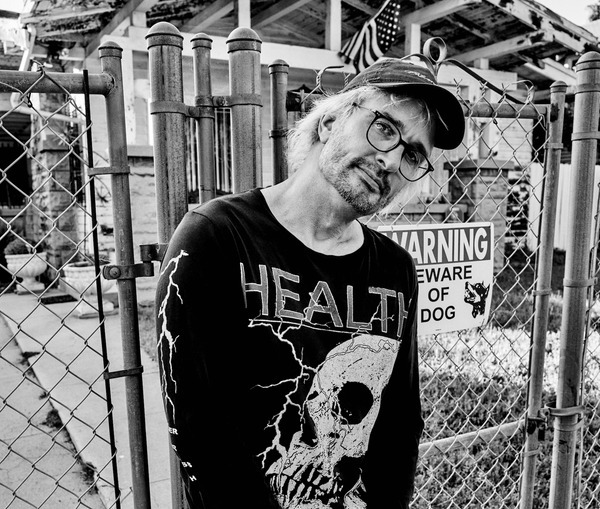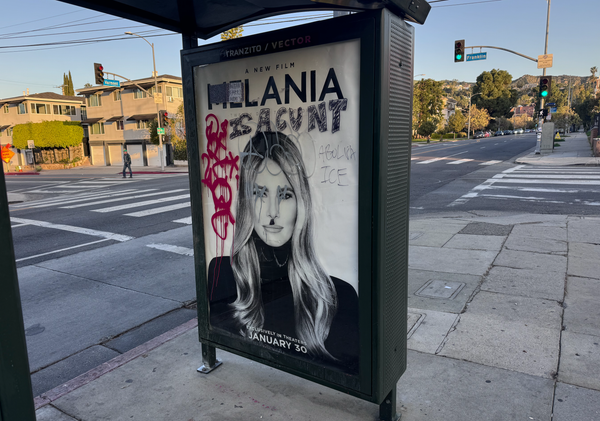Why #saveourchildren is not about saving our children
Reality no longer exists for conspiracy adherents: it's all a live action role playing game, where they're the hero
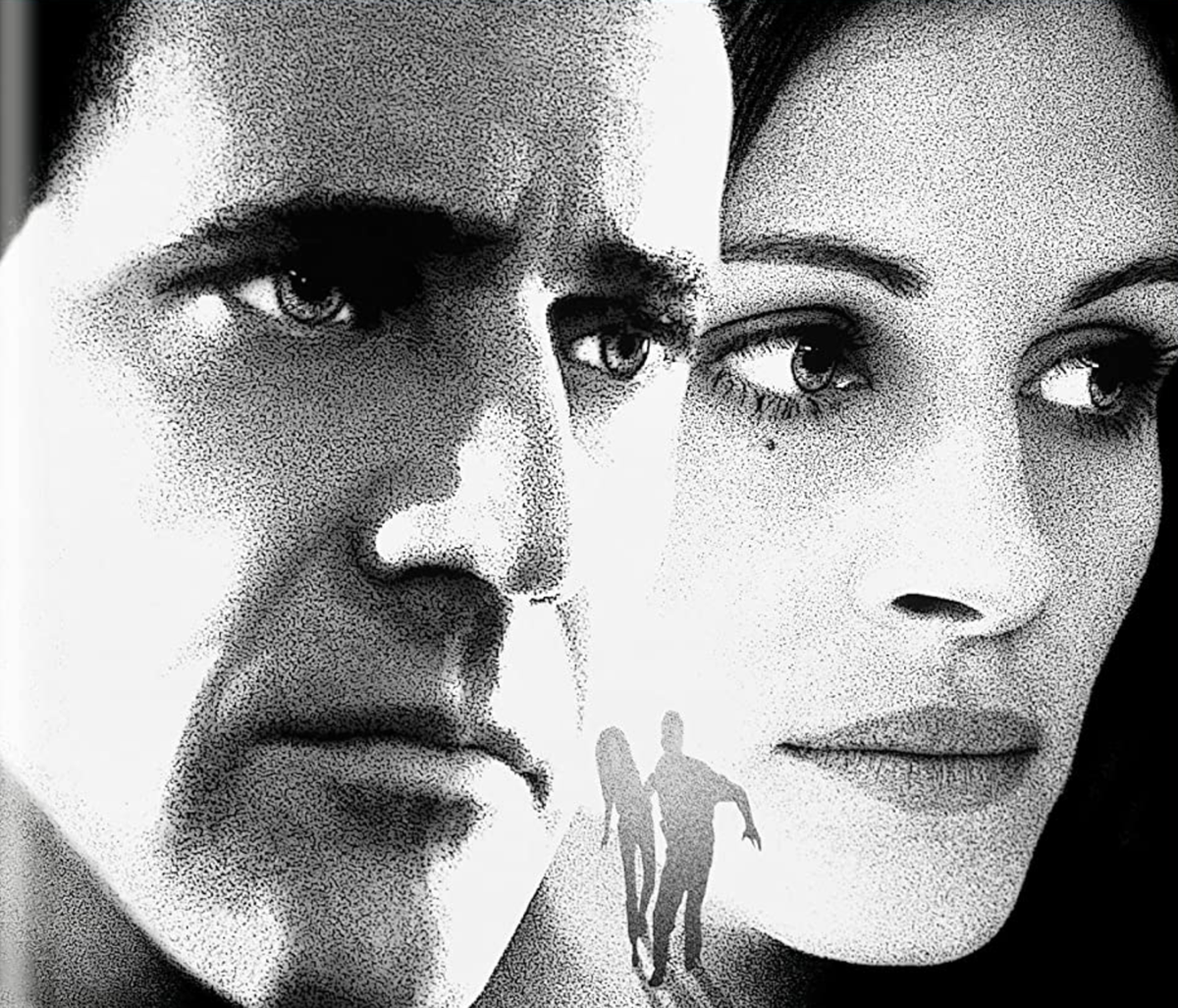
Hi, you wonderful people.
It’s strange how quickly things move at the moment. You wake up each day, and the world has moved in some new direction that feels warped and wrong.
You scroll through your news feed and it’s a different world to the one you knew when you drifted off to sleep.
Just looking at the news cycle — you can’t keep up. American politics and Trump’s madness move at such a pace, analysis is next to impossible. You can’t even catch your breath before the next scandal.
Plus, it’s way easier just to point and laugh at a meme, right?
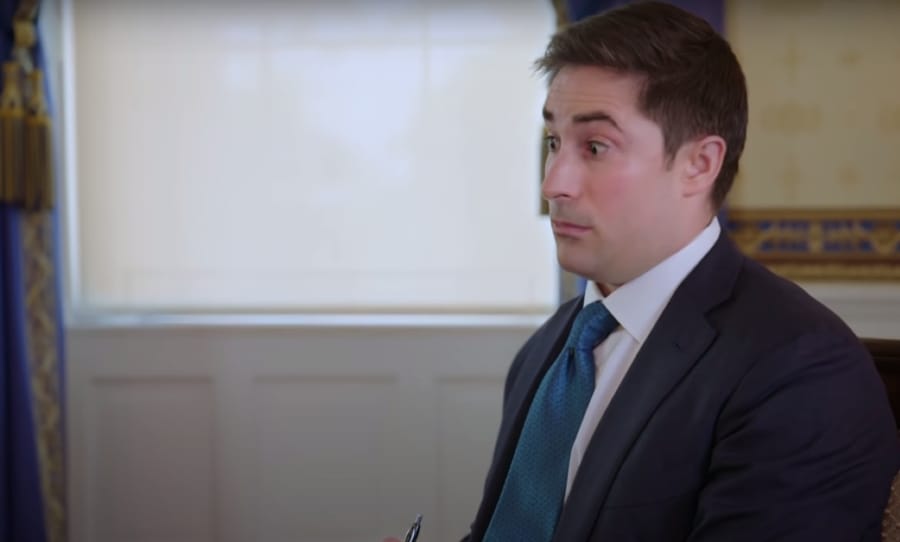
Imagine a history lesson at school, but instead of looking at the fall of the Roman empire, you’re analysing and making sense of the year 2020. I’d argue the former is way less complicated to wrap your head around.
So when you think about it, it’s no co-incidence that conspiracy theory culture is moving quickly, too. We live in confusing times, with a population that has a rapidly decreasing attention span. And we’re scared.
With no time for critical analysis, and social media algorithms purposefully out to fuck us, it’s no wonder people are falling down rabbit holes.
And the “Save our Children” movement has me thinking that we’re kidding ourselves if we don’t think this shit isn’t mainstream. Like, mainstream mainstream.
In today’s Webworm, I look at this conspiracy theory and speak to Travis View — a man who’s been following QAnon from the start.
Save Our Children: just more bullshit
A month ago, I wrote a piece called “Won’t somebody please think of the children!” — which looked at how quickly people are jumping into mad conspiracy theories involving trafficked children.
That particular post focussed on WayfairGate, a conspiracy theory that said an online homeware store was openly selling children as sex slaves. This was rapidly accepted as fact by thousands of people. I was surprised to see a few of my left-leaning friends getting amongst this one. Something about this one sucked a lot of people in.
It is the perfect environment for this stuff to spread: Jeffrey Epstein’s already proven that rich men can get unfettered access to underage girls — so of course elites like Hilary Clinton have been holding kids hostage underground!
It was surreal, as a few weeks after I wrote that piece, The United Nations had its ‘World Day Against Trafficking in Persons Day’.
This was a day meant to raise awareness of human trafficking — which again, is a very real thing — but it doesn’t have a fucking thing to do with batshit insanity like WayfairGate.
And that’s what I’m saying — information is moving at such a pace that many people don’t stand a chance of sorting out the bullshit from reality.
So now we’re in the grips “Save our children!” conspiracy theories en masse. Just take a look at this guy on Tiktok:

“You’ve hunted the children, the time has come to hunt you.”
Yes, it’s great to know he has a gun, and isn’t it wonderful to see the #Q hashtag there. Because of course this “save our children” thing is just another extension of QAnon - and it’s everywhere on social media platforms.
The twitter ban did absolutely nothing. And any kind of censorship by the likes of Facebook just reinforces the conspiracy to the believers. It’s a giant, ugly catch-22:
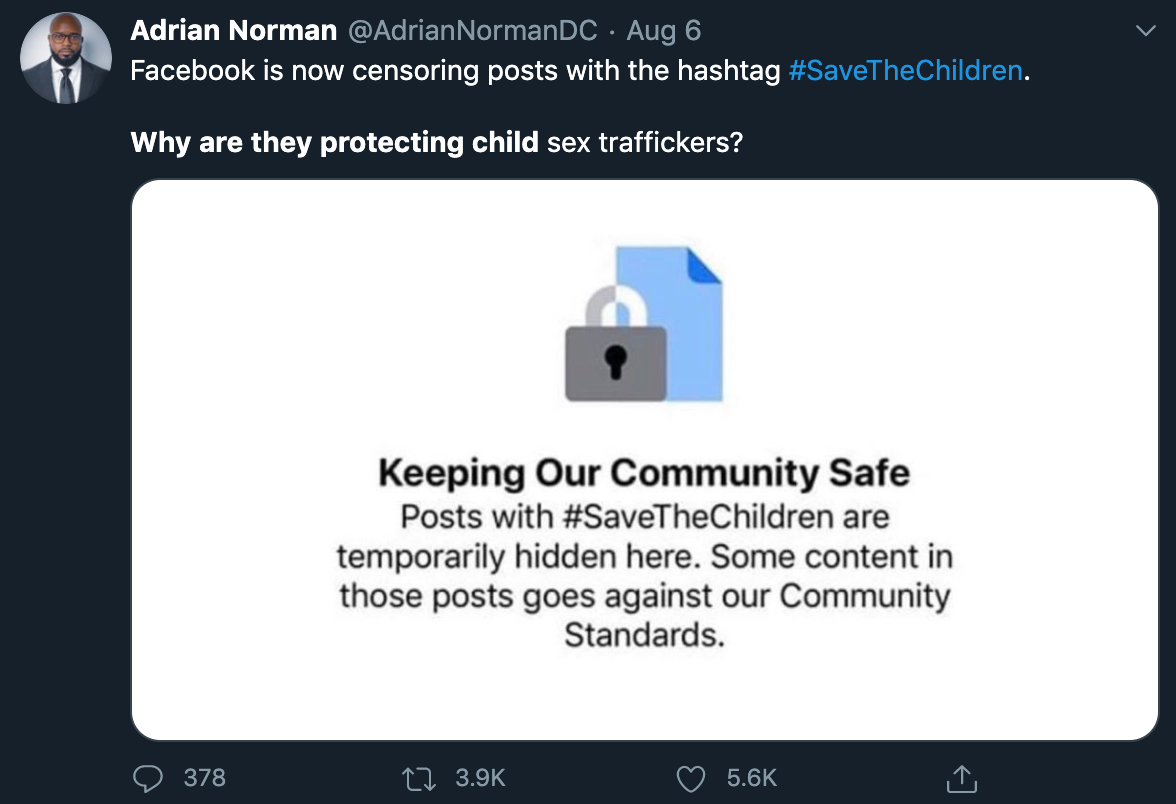
And yeah, in amongst the amazing dances and jokes, TikTok is also becoming covered in this stuff.

Women in their 30s, dudes in paramilitary gear holding guns, and moms — they’re all going there.
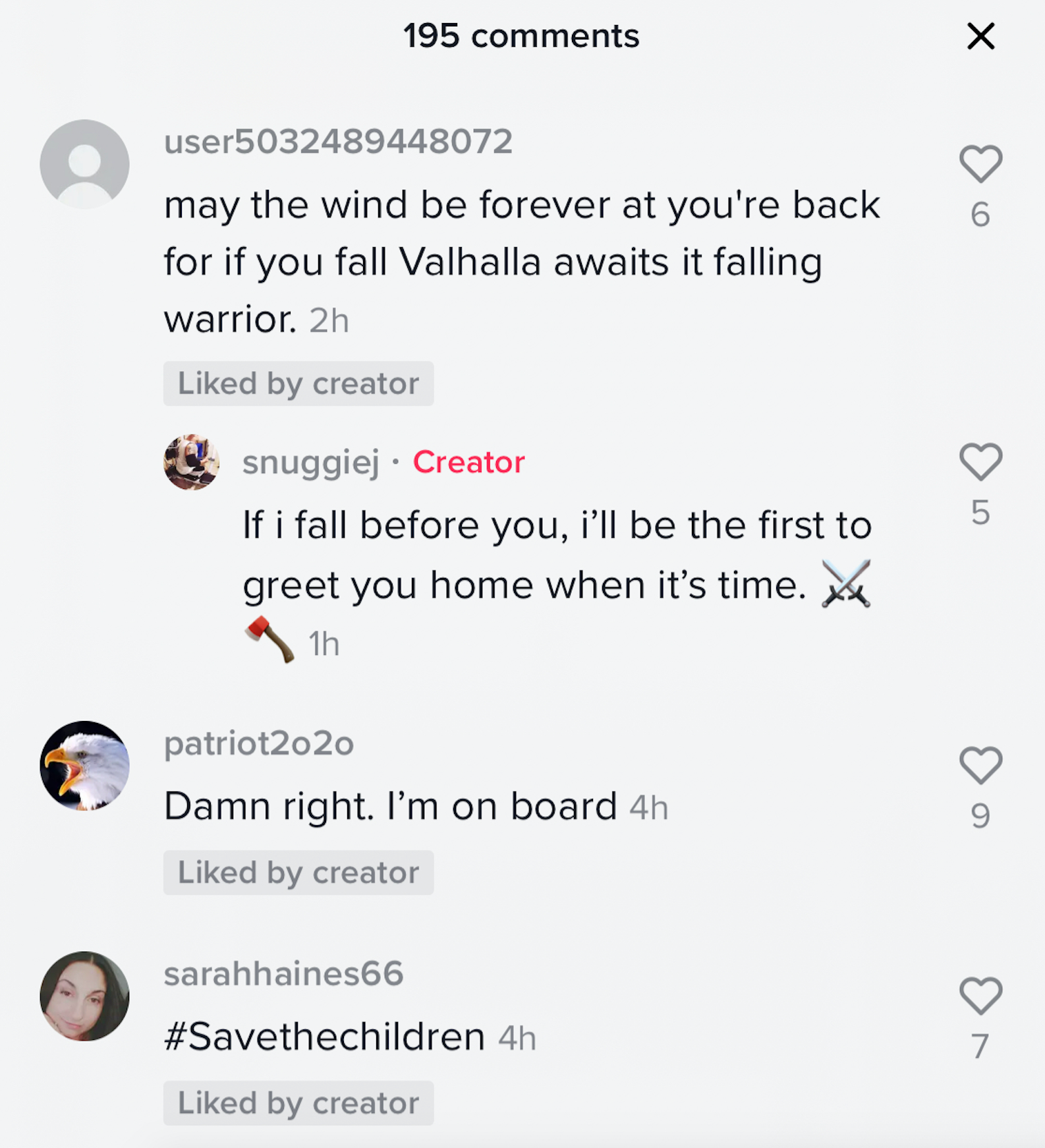

Again: it’s all #saveourchildrem, #q and #conspiracytheory. The last hashtag isn’t being used in an ironic way, either.
This isn’t a niche thing anymore, it’s mainstream. Here in New Zealand we have political parties forming around Q propaganda, and the same thing is happening in America.
But this “save our children” thing really hit home for me a little over a week ago, when I saw footage of a protest happening in Los Angeles. While LA is clearly a trash-fire of a place (the burgeoning homeless population alone is enough to tell you that state is broken), it’s also a place for me that represents a fairly liberal state with a certain amount of sanity (yes, I know, call me naive).
I lived there for a year and met some of the smartest, coolest people I know. And yet, now there are scenes like this:
Tonight on twitch, we're re-attending this Hollywood rally with chat and going down some more tiktok rabbit holes
— QAA Podcast 🌹 (@QanonAnonymous) 12:26 AM ∙ Aug 5, 2020
So, what’s the problem? Isn’t any awareness of human trafficking a good thing?
I’ve heard a few people say that — and the answer is a resounding no. For one thing, human trafficking “help lines” become overwhelmed by idiots calling in with misinformed, idiotic tips. Like — no, Tom Hanks is not part of this conversation.
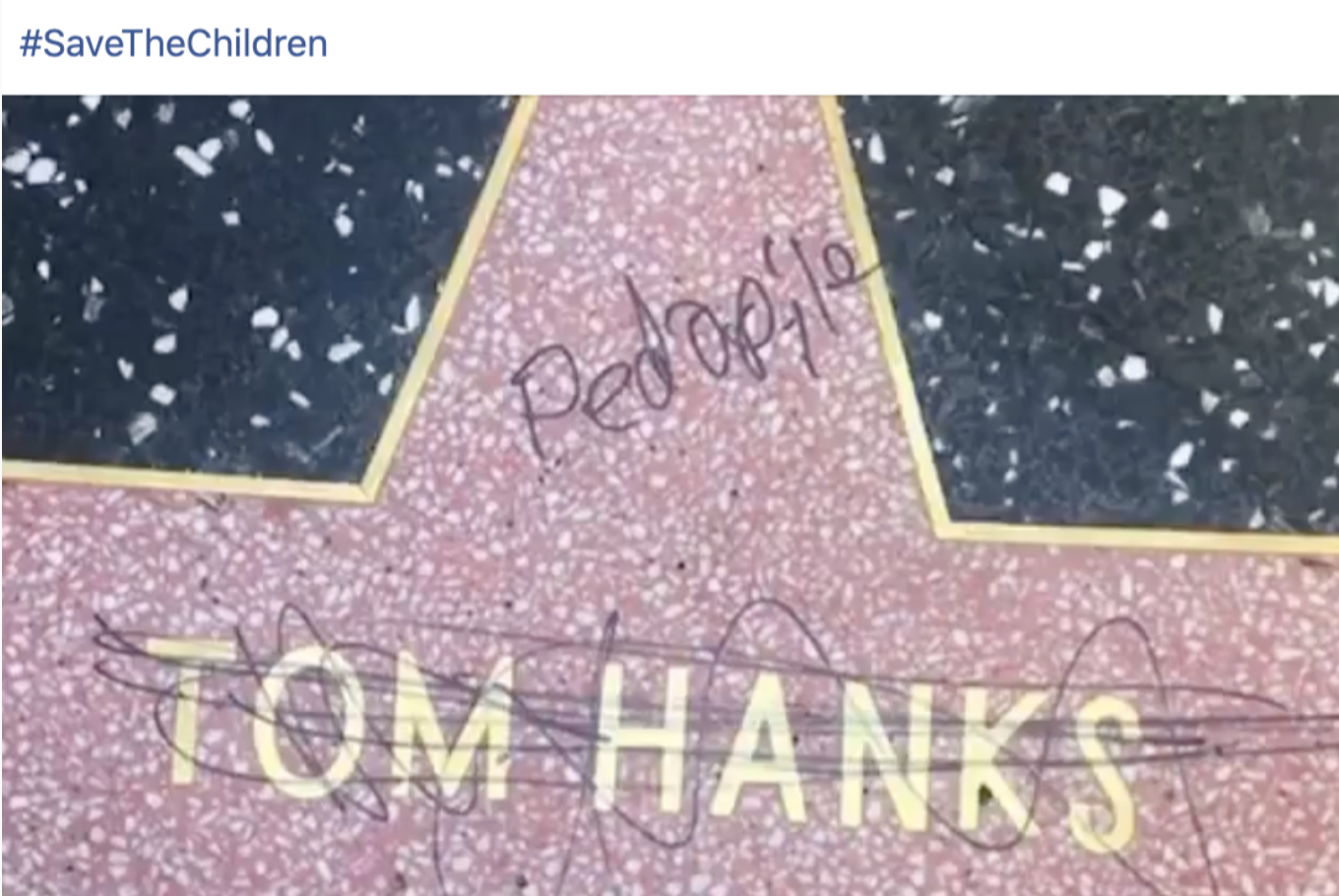
The #SaveOurChildren hashtag is also just a way to get people sucked into QAnon thinking. It’s like when the Church of Scientology was handing out those COVID-19 health tip pamphlets. Sure, they had health tips in them, but their purpose was for people to scan the QR code and end up on the Church of Scientology’s website.
In the same way, the people attending a “Save Our Children” rally in LA may think they’re standing up for children, but they’re really getting themselves involved with a bunch of people who think Bill Gates is literally satan.
And the main reason all this stuff stinks to high heaven is that the narrative being spun by the conspiracy theory clouds what’s really happening. Because no: Satan, Bill Gates and George Soros are not pulling the strings. It’s much more mundane — it’s bad people doing bad things, as we always have.
It’s the mega rich like Epstein and it’s a bunch of grimy fucking idiots like a preacher, or a disgusting doctor.
It’s not a videogame where you make your way fighting off enemies (and saving children) in underground tunnels before emerging in Bill Gates’ lair where you fight Satan, the COVID-19 vaccine and Hilary Clinton with your AR-15 with built in grenade launcher.
No, real life is much worse and grittier and more boring.
Checking in with Travis View: a QAnon expert, and someone I admire

I’ve linked to the QAnon Anonymous podcast at various times in Webworm, as well as tweets from one of the hosts, Travis View.
As I was writing down my thoughts on the #saveourchildren thing, I wanted to get his input, too.
Travis covered that LA protest, and I wanted to get his feeling on what this all means, and if we can ever escape this mess.
Just a very broad question for people who don’t know you and your work: can you just quickly tell me a bit about yourself and what you do, and why you spend a fair bit of your time observing, writing and podcasting about conspiracy theories?
I track the development of the QAnon community through my Twitter account, podcast, and occasionally published articles.
I’m a digital marketer by profession, but I’ve always been interested in fringe online communities and conspiracy theories.
Before QAnon, I was deeply interested in the Young Earth Creationist community. They hold that the Earth is between six and ten thousand years old, instead of the age of 4.5 Billion years old as indicated by radiometric dating.
Young Earth Creationists reject clear evidence and latch onto irrelevant information in much the same manner that QAnon followers do.
You’ve been documenting the rise of the Q movement with both smarts and humour since it was just this obscure twinkle online... did you ever think it would be in the mainstream conversation as much as it is right now?
I first took serious notice of the mainstreaming of QAnon in July of 2018, when the American conservative pundit Charlie Kirk tweeted out bogus human trafficking statistics that originated in the QAnon community.
This was already after comedian Roseanne Barr endorsed QAnon. With such high profile support, I knew that QAnon would continue to get more popular outside of the chans — barring some intervention from social media companies, policymakers, and conservative pundits.
I had assumed that this intervention might come once it was obvious that QAnon was a growing phenomenon.
That assumption turned out to be naive.
The reason I reached out to you was after watching the “Save the Children” protest in LA at the end of July.
I was just struck me very clearly that this shit is now mainstream mainstream. It’s not just mums on Facebook or mad corners of reddit.... hippies and liberals and young people are very quickly believing the most outlandish shit. Like, seemingly overnight.
Does this stuff still surprise you?
When I attended the first QAnon rally in Washington D.C. in September of 2019, I was surprised by the amount of diversity in the small crowd.
It was clear that it wasn’t just a “white boomer” phenomenon as some people had dismissed it. Even many of the speakers were on the younger side.
So I can’t say I was surprised by the recent “Save the Children” protest. The broader popularity of QAnon may have seemed like it arose overnight, but in reality it’s been a slow burn.
The seeds of what you’re seeing today were planted years ago.
You know way more about this stuff than I do, but do you have any insight into why humans are jumping on this stuff so quick? Is it just that social media has broken us?
I suppose I just think back to myself 20 years ago at high school, as someone who’d just watched (and loved!) Mel Gibson in Conspiracy Theory, and devoured stuff like The X-Files — but if I heard this QAnon mole-children Wayfair-pedo-cabinet stories, I’m confident I would have called “bullshit” straight away. Even as a very stupid 16 year old.
That isn't happening anymore. No one is calling bullshit. Why?
There are lots of reasons, but a major factor is that the price of being a deranged conspiracy theorist used to be higher. Few conspiracy theorists reached high levels of political power. Conspiracy theorists themselves risked social ostracism.
But now the most famous conspiracy theorist in the world also happens to be the most powerful man in the world.
Promoting conspiracy theories doesn’t isolate you any more, it actually pushes you into a welcoming community of like-minded conspiracy theorists.
Our brains evolved to help us survive and reproduce, not distinguish true propositions from false ones. If you’re prone to calling bullshit when confronted with bullshit, that’s fantastic. But that’s a specialized skill you acquired through years of training, it’s not innate.
When people can acquire power and find companionship despite professing counterfactual claims about the world, don’t be surprised when bullshit becomes more popular.

Do you have any hope the truth will ever stand for anything again, or is the rest of our existence this sort of live-action-role-playing game, where people just make shit up and spend their lives talking about absolute rubbish and trying to solve made-up mysteries?
I can’t say that I hope skepticism will ever be en vogue. And it may be the case that a significant chunk of the population will choose to live a fantasy life of their choosing, rather than confront complex and sometimes unpleasant realities.
But I don’t despair, either.
The only thing I (or anyone) can do is seek, understand and defend the truth based on the best information available to me. Even setting aside the virtue of truth seeking, I think there is a lot of joy and relief that comes with empirical and critical thinking.
QAnon followers are often so overemotional and anxious because they do daily battle with enemies that only exist in their head. If they’d rather experience the dramatic lows and highs that comes with LARPing as a digital soldier, I think that’s ultimately harmful to both themselves and society at large.
But their decision is outside of my power, so I don’t worry about it too much.
Any advice for dealing with people who are down this rabbit hole?
I think it’s a bad idea to constantly call QAnon followers deranged conspiracy theorists (though they are.)
In their view, this kind of strong opposition only makes them believe they’re “challenging the mainstream narrative” and triggering a blue-pilled normie.
There are two more effective ways to get under their skin: Firstly, point out that despite the fact they fancy themselves “researchers” and defenders of children, they’re useless.
The person who helped uncover the facts about Jeffery Epstein that led to his second arrest wasn’t the collective of QAnon followers on Twitter and the chans. It was Julie K. Brown, a traditional investigative journalist for the Miami Herald.

Despite their fantasy of being “citizen journalists,” a single MSM reporter did better work than every QAnon follower combined when it comes to uncovering high powered corruption and child abuse.
They’re also useless in terms of helping children. In fact, their deranged Wayfair conspiracy theory jammed the National Human Trafficking Hotline, actually putting more potential human trafficking victims at risk.
Secondly, pity them.
Not in a patronising way, but because they always (with the possible exception of the QAnon grifters) deserve pity. They’re scared, lost, angry, and they can’t tolerate uncertainty about what the future holds.
Every single true believing QAnon follower lacks the mental strength required to face the randomness and cruelty that are an inescapable part of being alive. Latching onto QAnon is an expression of weakness and a lack of self control.
Hold out hope that they’ll be able to summon enough fortitude to turn to reality again, in the same way you might hope that an alcoholic will eventually put down the bottle.
Thanks for that, Travis. Appreciated.
Some final thoughts: social media is rewiring our brains.
There’s no doubt social media has a lot to do with the way we’re getting sucked into these vortexes of bullshit.
Sure, I am an old 37-year-old man yelling at the kids on my lawn — but it’s true. Social media sucks.
Buzzfeed had a great piece this week, in light of the current Congressional hearing looking at whether Amazon, Apple, Facebook and Google are too powerful. The piece looks at the way we talk to each other online — and how the systems that allow us to do that are fundamentally broken.
“Twitter is changing how I think, and I hate it,” writes Elamin Abdelmahmoud.
And while the piece focusses a lot on cancel culture and what it means, I think Abdelmahmoud makes some very relevant points that apply to the spread of misinformation online:
“Facebook and Twitter have positioned themselves as the new public square. This is not a paraphrasing — both Zuckerberg and Twitter CEO Jack Dorsey have referenced their platforms as such.
But heralding themselves as champions of free speech on ginormous scales just obfuscates their actual purpose: to monetize our interactions in order to grow. Joan Donovan, the research director at Harvard’s Shorenstein Center on Media, Politics, and Public Policy, told me that social media platforms “calling themselves the public square was a clever ploy from the get-go to avoid regulation.”
It also helps them avoid any semblance of responsibility for what they have created: environments that are, by design, optimized for emotional and divisive content, and mysterious algorithms that seem to be aimed at maintaining audience attention even at the expense of damaging digital conversation.”
I wanted to share the piece with you, because I think it’s important that as we observe the growth and spread of bullshit, we keep in mind these platforms — these giant revenue gatherers — have a lot to answer for.
With all that said — I hope you have a good week. Stay safe out there. I don’t mean to keep writing endlessly about conspiracy theories, but I think I’ll keep calling this stuff out from time to time, and seeking insight from people like Travis.
Feel free to forward this on, or share the link around. I like to think these words might end up making a positive change for at least one person out there!
Thanks,
David.
PA: One thing Travis said particularly stood out to me, and I think we all need to remember it:
“Our brains evolved to help us survive and reproduce, not distinguish true propositions from false ones. If you’re prone to calling bullshit when confronted with bullshit, that’s fantastic. But that’s a specialized skill you acquired through years of training, it’s not innate. When people can acquire power and find companionship despite professing counterfactual claims about the world, don’t be surprised when bullshit becomes more popular.”



